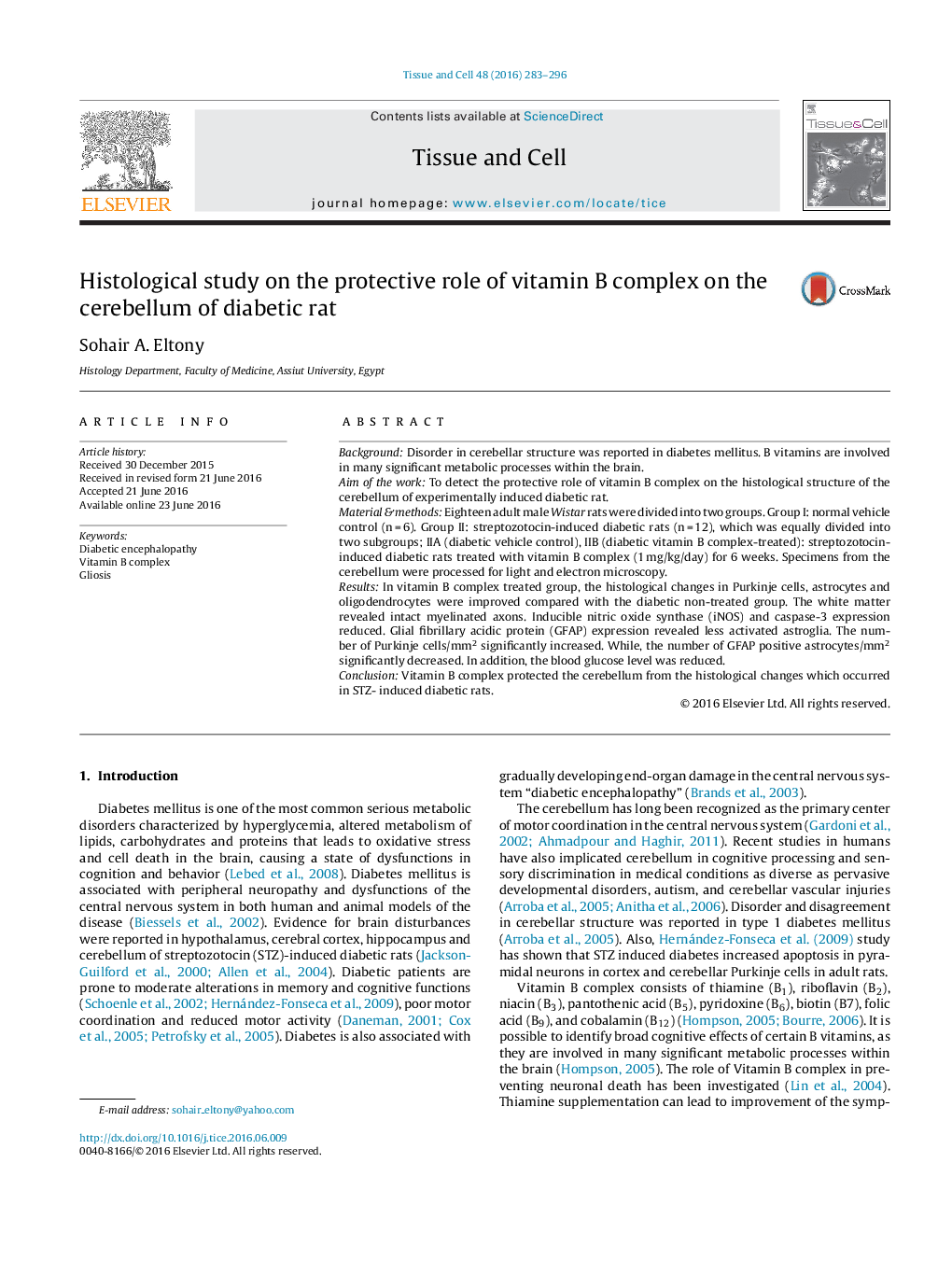| کد مقاله | کد نشریه | سال انتشار | مقاله انگلیسی | نسخه تمام متن |
|---|---|---|---|---|
| 2203481 | 1402215 | 2016 | 14 صفحه PDF | دانلود رایگان |
• The morphological and histochemical changes in the cerebellum of adult male rats are analyzed.
• Three animal groups are used; control, STZ-diabetic, and STZ-diabetic treated daily with vitamin B-complex for 6 weeks.
• The major findings are that diabetes causes pathophysiological changes in most major cell types in the cerebellum.
• These changes are prevented or reduced by daily treatment with the B-complex, and blood glucose levels are also reduced.
• These are very interesting findings that suggest a relatively cheap and readily-accessible vitamin supplement treatment for diabetes.
BackgroundDisorder in cerebellar structure was reported in diabetes mellitus. B vitamins are involved in many significant metabolic processes within the brain.Aim of the workTo detect the protective role of vitamin B complex on the histological structure of the cerebellum of experimentally induced diabetic rat.Material & methodsEighteen adult male Wistar rats were divided into two groups. Group I: normal vehicle control (n = 6). Group II: streptozotocin-induced diabetic rats (n = 12), which was equally divided into two subgroups; IIA (diabetic vehicle control), IIB (diabetic vitamin B complex-treated): streptozotocin-induced diabetic rats treated with vitamin B complex (1 mg/kg/day) for 6 weeks. Specimens from the cerebellum were processed for light and electron microscopy.ResultsIn vitamin B complex treated group, the histological changes in Purkinje cells, astrocytes and oligodendrocytes were improved compared with the diabetic non-treated group. The white matter revealed intact myelinated axons. Inducible nitric oxide synthase (iNOS) and caspase-3 expression reduced. Glial fibrillary acidic protein (GFAP) expression revealed less activated astroglia. The number of Purkinje cells/mm2 significantly increased. While, the number of GFAP positive astrocytes/mm2 significantly decreased. In addition, the blood glucose level was reduced.ConclusionVitamin B complex protected the cerebellum from the histological changes which occurred in STZ- induced diabetic rats.
Journal: Tissue and Cell - Volume 48, Issue 4, August 2016, Pages 283–296
